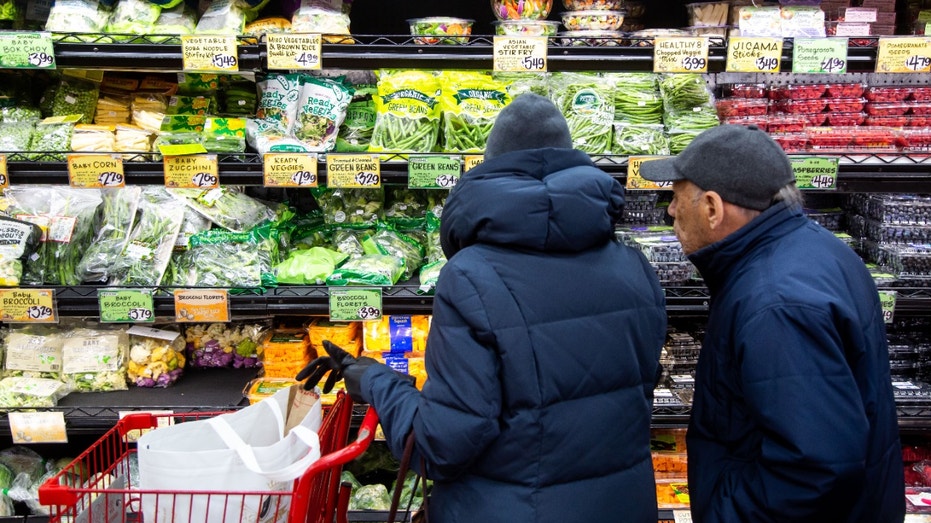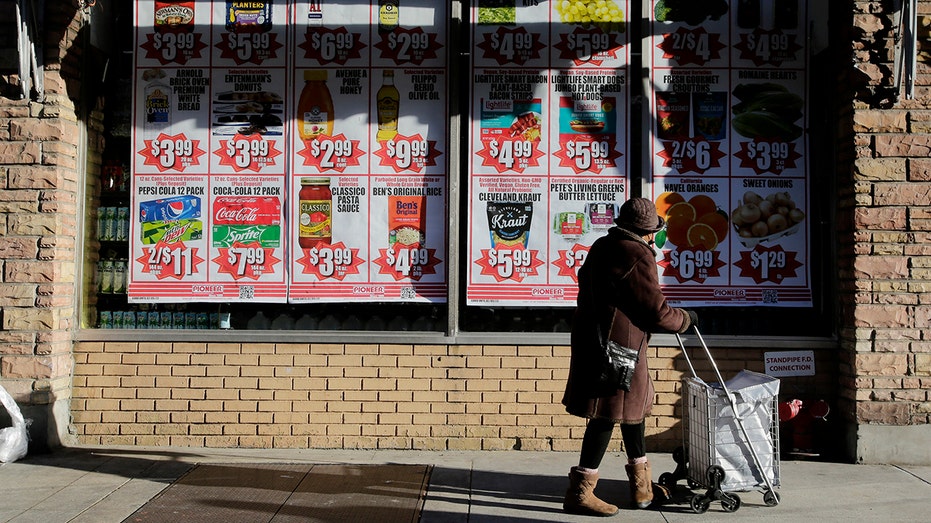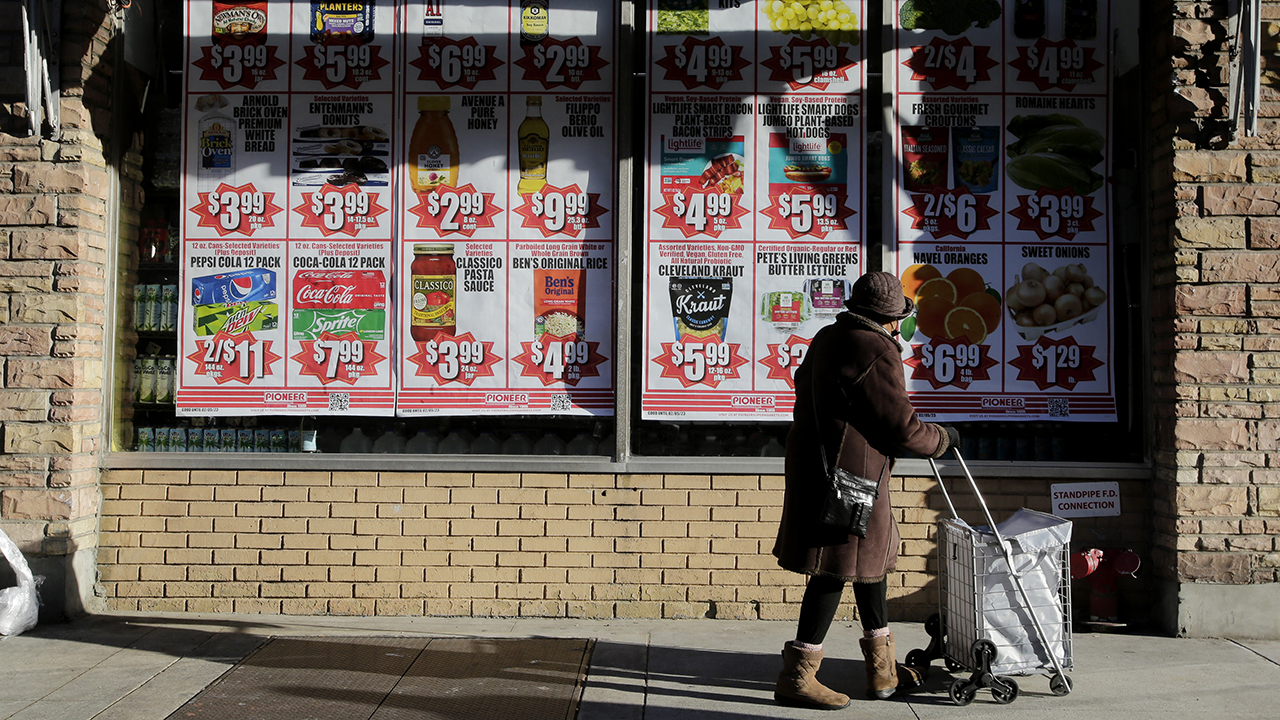Inflation rose 0.4% in February as prices remain stubbornly high
Economists expected core inflation to increase again in February
Where should the Fed funds rate be to combat inflation?
Hoover Institution senior fellow John Taylor reacts to the Federal Reserve's efforts to combat inflation on 'Kudlow.'
Inflation remained uncomfortably high in February, although it has cooled slightly from a peak notched in 2022.
The Labor Department said Tuesday that the consumer price index, a broad measure of the price for everyday goods including gasoline, groceries and rents, rose 0.4% in February from the previous month. Prices climbed 6% on an annual basis.
Those figures were both in line with forecasts by Refinitiv economists.
It marked the slowest annual inflation rate since September 2021. Still, inflation remains about three times higher than the pre-pandemic average, underscoring the persistent financial burden placed on millions of U.S. households by high prices.
SVB COLLAPSE THROWS FED RATE-HIKE DECISION NEXT WEEK INTO UNCERTAINTY
Core prices – which strip out the more volatile measurements of food and energy – climbed 0.5% over the course of February, slightly faster than in January. On a 12-month basis, core prices are up 5.5%.
"February CPI data was a mixed bag, but the rise in core inflation shows we’re stuck on a plateau for now," said Robert Frick, a corporate economist with Navy Federal Credit Union. "Inflation should start moving strongly lower this spring and summer, especially as lower rent costs work themselves into the numbers."
The report is the last before the Federal Reserve's next policy-setting meeting on March 21-22 and will have major implications for the U.S. central bank, which is tightening monetary policy at the fastest rate in decades as it tries to crush out-of-control inflation.
MORTGAGE RATES POST BIG DECLINE AMID SVB FALLOUT
Officials have already approved eight straight rate increases, lifting the federal funds rate to a range of 4.5% to 4.75%, well into restrictive levels. In recent weeks, policymakers have indicated that rates may need to climb higher than previously anticipated in the face of hotter-than-expected economic data.

Customers shop at a grocery store in the Brooklyn borough of New York, on Dec. 13, 2022. (Michael Nagle/Xinhua via / Getty Images)
However, rate-hike expectations were thrown into uncertainty after the implosion of Silicon Valley Bank on Friday roiled global markets and triggered fears of a broader financial meltdown.
The probability that the Fed pauses its rate-hike campaign next week fell to 18% on Tuesday after the latest CPI release, according to data from the CME Group's FedWatch tool, down from 28% just one day ago. About 82% of traders, meanwhile, are anticipating a typical quarter-point hike.
"The Federal Reserve is going to have to pick its poison – tolerate some inflation for a bit to see if its current series of rate hikes takes hold and pause, or keep hiking and deal with the financial instability caused by their own policy decisions," said Jamie Cox, a managing partner for Harris Financial Group.
| Ticker | Security | Last | Change | Change % |
|---|---|---|---|---|
| I:DJI | DOW JONES AVERAGES | 50135.87 | +20.20 | +0.04% |
| I:COMP | NASDAQ COMPOSITE INDEX | 23238.66991 | +207.46 | +0.90% |
| SP500 | S&P 500 | 6964.82 | +32.52 | +0.47% |
Scorching-hot inflation has created severe financial pressures for most U.S. households, which are forced to pay more for everyday necessities like food and rent. The burden is disproportionately borne by low-income Americans, whose already-stretched paychecks are heavily impacted by price fluctuations. Consumers continued to see some reprieve in February in the form of lower energy costs, which fell 0.6% during the month.
Other price gains proved persistent and stubbornly high in February: The cost of groceries climbed 0.3%, putting the 12-month increase at 10.2%. Consumers paid more for items like cereal, bread, fresh fish and seafood, bananas, coffee and meat, including beef, veal, ham and chicken,

Prices are displayed in a grocery store on Feb. 1, 2023, in New York City. (Leonardo Munoz/VIEWpress / Getty Images)
Shelter costs, which account for about 40% of the core inflation increase, rose 0.8% for the month and are up 8.1% over the past year.
Rent costs jumped 0.7% over the month and 8.8% on an annual basis. Rising rents are a concerning development because higher housing costs most directly and acutely affect household budgets. Another data point that measures how much homeowners would pay in equivalent rent if they had not bought their home, climbed 0.7% from the previous month.
CLICK HERE TO READ MORE ON FOX BUSINESS
With food and shelter costs continuing to march higher, U.S. households are facing increased financial pressure. Average hourly earnings declined 1.3% in February from the previous year on an inflation-adjusted basis. Earnings fell by 0.1% from January to February when factoring in the 0.4% increase in inflation.





















